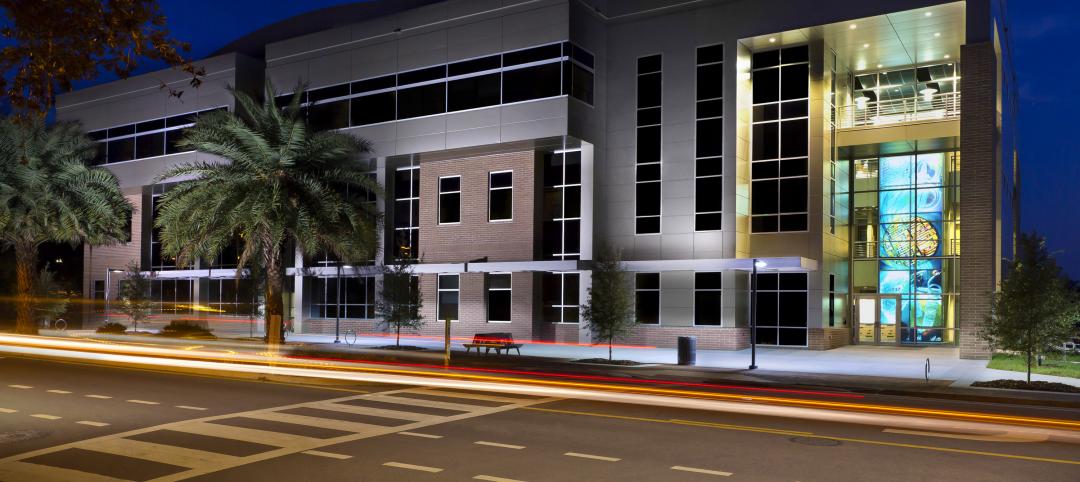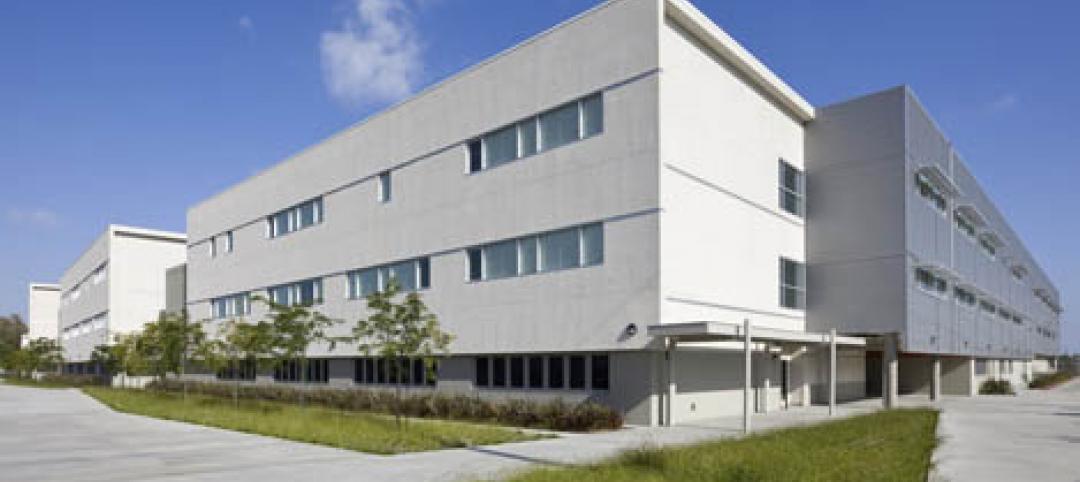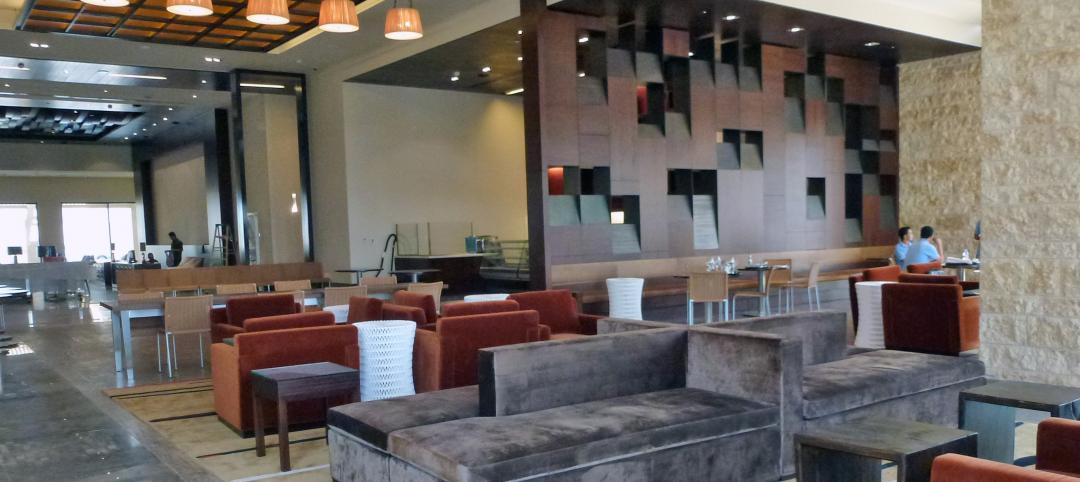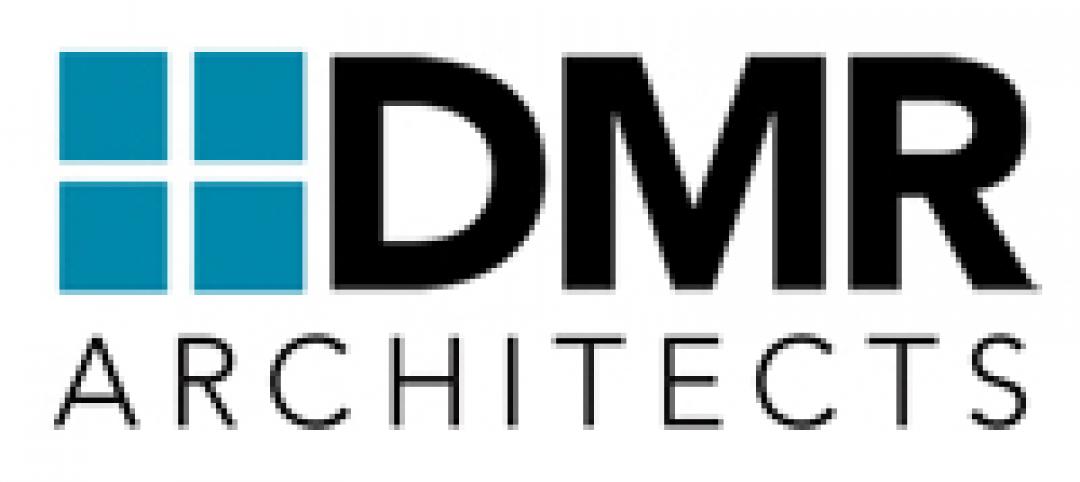Note: This article originally appeared in BD+C's April 2013 AIA/CES course, "Advanced Controls and Exterior Tactics for Better Illumination." This free class is available on BD+C University.
“We don’t specify LEDs,” says Avraham Mor of Lightswitch Architectural. “We specify solid-state luminaires and lamps (SSL) that use LEDs.”
Mor’s correction of this common misuse of the term “LED” is significant, because a problem associated with SSL is often just a problem with a specific LED product. “SSL is the only source to use when trying to meet energy reduction goals while maintaining the look and feel we typically work toward,” he says. “We have had great success, but it takes a great designer and client to manage the entire process.”
In fact, many complaints about LEDs are often attributable to the SSL, and vice versa, leading to complaints about a technology that sometimes fails to meet expectations. But SSL, as Mor says, is really the future of energy reduction; with careful design and specification, it is also the present.
PNNL’s Naomi Miller points to the myriad benefits of LED technology: “Higher lumens-per-watt than fluorescent, good lumen maintenance over time (in some cases better than fluorescent), long life compared to CFL or metal halide, and excellent color compared to almost any conventional light source.” She adds that the small form factors mean LEDs are richly accommodating, allowing designers enormous creative flexibility with space, configuration, and color.
Lumen Architecture’s Nelson Jenkins says blanket substitutions aren’t necessarily a good strategy, however: “Not all LED products match the quality of the other sources we specify.” In addition, price is still an issue. “We find that while the cost of LEDs has come down, they tend to be more expensive than, for instance, a halogen version. But the up-front cost for LEDs can often be offset by the energy savings and reduced maintenance.” Jenkins suggests explaining to clients that SSL will require re-lamping less often—an especially strong selling point in vaulted spaces or exterior applications.
Ultimately, the SSL category is a work-in-progress, not a panacea. “LED is certainly very popular, and many designs would not be possible without it,” The Lighting Practice’s Stephen Hoppe says, referring to exterior applications. “But ceramic metal halide also provides great color rendition and warmth and can often be as efficient as LED.”
James Benya of the California Lighting Technology Center, UC-Davis, has concerns about how codes and standards may be affecting the market for products and systems, particularly LEDs. He hopes to see energy codes and sustainable building standards that do not promote particular technologies.
“The current trend shows a rush to use LEDs,” warns Howard Brandston, founder of Brandston Partnership. “One must determine if LED is the right choice after sifting through the qualities of all the alternate products. There is no change in the design process,” he concludes, “just an additional product to select from.”
Related Stories
| Nov 8, 2011
$11 million business incubator Florida Innovation Hub at the University of Florida completed by Charles Perry Partners, Inc.
The facility houses the UF Office of Technology Licensing, UF Tech Connect, other entities, and more than 30 startup technology tenants.
| Nov 8, 2011
Designer joins Holabird & Root
Clifton has been awarded numerous awards throughout her career, including two AIA Chicago Design Excellence Awards.
| Nov 4, 2011
Mortenson Construction builds its fifth wind facility In Illinois
Shady Oaks Wind Farm is under construction near Compton, Ill.
| Nov 4, 2011
CSI and ICC Evaluation Service agree to reference GreenFormat in ICC-ES Environmental Reports?
ICC-ES currently references CSI's MasterFormat and other formats in all of its evaluation reports. The MOU will add GreenFormat references.
| Nov 4, 2011
McCarthy completes construction of South Region High School No. 2 in Los Angeles
Despite rain delays and scope changes, the $96.7 million high school was completed nearly two-months ahead of schedule.
| Nov 4, 2011
Two Thornton Tomasetti projects win NCSEA’s 2011 Excellence in Structural Engineering Awards
Altra Sede Regione Lombardia and Bank of Oklahoma Center both recognized.
| Nov 3, 2011
GREC Architects announces opening of the Westin Abu Dhabi Golf Resort and Spa
The hotel was designed by GREC and an international team of consultants to enhance the offerings of the Abu Dhabi Golf Club without imposing upon the dramatic landscapes of the elite golf course.
| Nov 3, 2011
Hardin Construction tops out Orlando Embassy Suites
The project began in April 2011 and is expected to open in fall 2012.
| Nov 3, 2011
2012 Pritzker Architecture Prize Ceremony to be held in China
The tradition of moving the event to world sites of architectural significance was established to emphasize that the prize is international, the laureates having been chosen from 16 different nations to date.
| Nov 3, 2011
DMR Architects welcomes two new staff members
Siro Gonzalez joins the staff as junior graduate architect and Megan Byers joins the staff as marketing assistant.
















